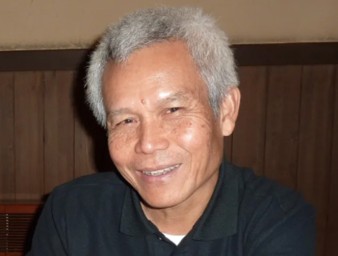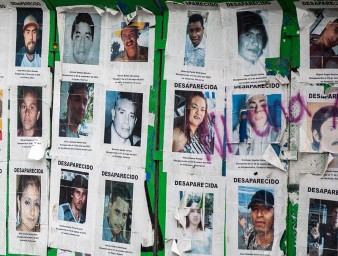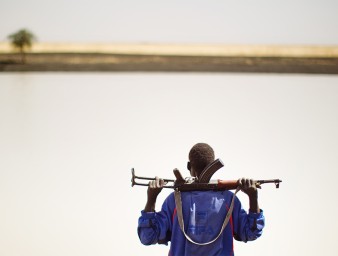Legacy of enforced disappearances haunts Sri Lanka
21 May 2024
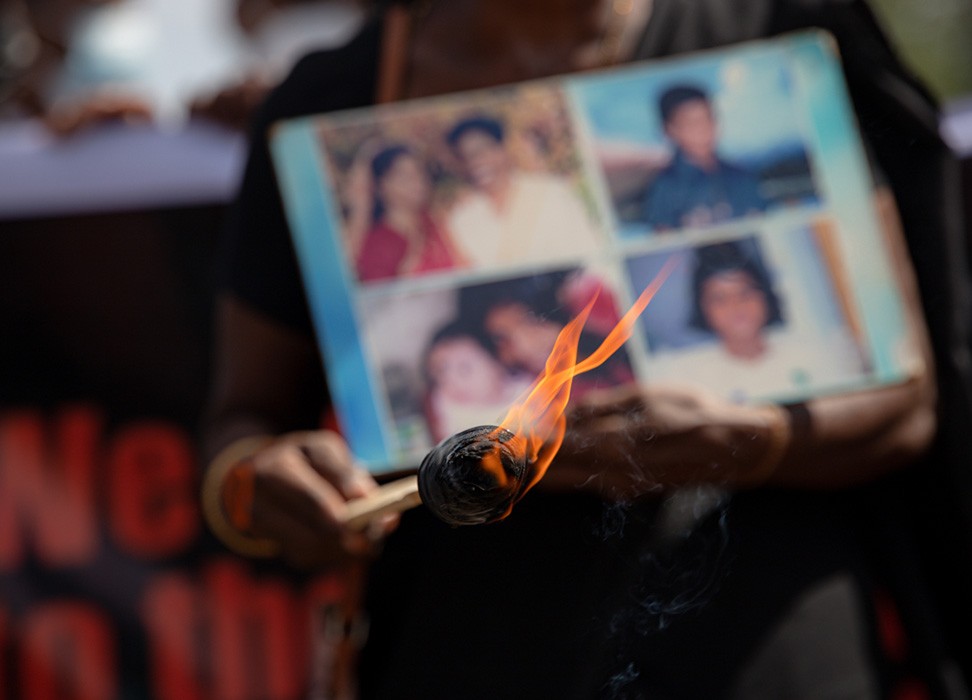
“I have been looking for my son since 2009. I am now 72 years old and I will leave this world soon. Maybe I will get to see my son again or at least find out where he is buried,” said Kamala*.
Kamala is part of the Association for the Relatives of the Enforced Disappearances in the North and East Provinces, a civil society group created to search for the tens of thousands of people who disappeared during Sri Lanka’s armed conflict.
She has visited refugee camps, scoured mass graves in villages and staged peaceful demonstrations with other mothers and wives of the disappeared, asking authorities: Where are our children? Where are our husbands?
“When we started our struggle we had big hopes that we would get justice, but we have lost faith in the government,” she said.
Although Sri Lanka’s war ended 15 years ago, families of the disappeared are still waiting for truth, justice and reparations. Without knowledge of the fate and whereabouts of loved ones, enforced disappearances haunt entire communities, undermining the country’s efforts for reconciliation, human rights groups say.
As the majority of the disappeared were men, it is mostly mothers and wives who are leading the search for relatives and the fight for accountability, battling numerous legal and procedural obstacles and a campaign of harassment and intimidation.
“It is very difficult to explain the pain of mothers,” said Laxmy*, 62, who is also looking for her disappeared son. “We have fought for a long time without knowing if our children are alive or dead. We have also faced financial problems,” she said.
Kamala’s and Laxmy’s sons, from the Tamil community, disappeared in the north of the island in May 2009 during the final phase of the conflict. To this date neither of the two know what happened to their sons. Fighting back tears, they spoke of the anguish suffered by families and their inability to find closure.
“I need to know where my son is. Without knowing we cannot have peace in our minds,” said Laxmy. “There are religious rituals we have to do for the peace of the soul. I do it for my dead husband, but I cannot do it for my son.”
Accountability
Last week, a report from the UN Human Rights Office said Sri Lanka must confront the legacy of enforced disappearances by holding those responsible to account. The report called on Sri Lanka’s government to acknowledge the scale of disappearances and the involvement of State security forces and armed groups, and to take action to disclose the fates and whereabouts of the disappeared.
Sri Lanka has suffered from waves of enforced disappearances over decades. Used primarily by Sri Lankan security forces and paramilitary groups as a tool to intimidate and oppress perceived opponents, enforced disappearances have targeted tens of thousands from the 1970s to the end of the conflict in 2009. The Liberation Tigers of Tamil Eelam also engaged in abductions, which the UN Working Group on Enforced or Involuntary Disappearances described as “tantamount to enforced disappearances.”
Enforced disappearances impacted not only the Tamil community. Thousands of suspected left-wing insurgents from the Sinhalese community also were forcefully disappeared.
“
We only need the truth.
“
A woman searching for her brother since 2009
For Brito Fernando, president of the Families of the Disappeared organization, a credible truth and justice process is desperately needed to achieve national reconciliation and to guarantee that violence does not repeat itself.
“We have to keep putting pressure on the government and on the international community on accountability” said Fernando, who is from the Sinhalese community. “Families from the North, East and South are fighting together for justice, to make sure this does not happen again, and to demand truth and compensation.”
Fernando said the successive governments of Sri Lanka have ignored the needs of victims and their calls for accountability. In recent years, the government has taken some steps, such as the ratification of the International Convention for the Protection of All Persons from Enforced Disappearance, and the establishment of the Office on Missing Persons and the Office for Reparations.
But victims’ groups say such steps are only designed to deflect international pressure and have produced no results. Mistrust towards past government Truth Commissions run deep among victims and affected communities, they say.
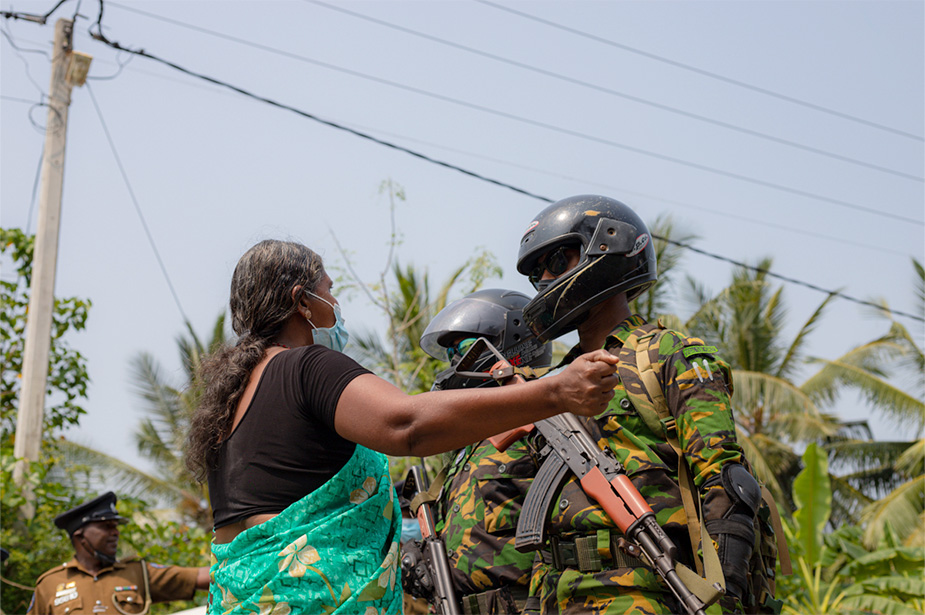
Impunity remains a major obstacle to peace and reconciliation. Families of the disappeared hold regular demonstrations and sit-ins asking for answers. © Kumanan Kanapathippillai
Under Human Rights Council resolutions 46/1 and 51/1, the Office is working to advance accountability for gross violations of human rights and international humanitarian law and related crimes in Sri Lanka.
Working closely with victims, the OHCHR Sri Lanka accountability project (OSLap) is mandated to: collect, consolidate, preserve and analyze information and evidence of violations and abuses of human rights; develop strategies for future accountability processes for gross violations and abuses of human rights or serious violations of international humanitarian law; support relevant judicial and other proceedings, including in Member States, with competent jurisdiction; and advocate for victims and survivors.
Victims and survivors of enforced disappearances have been impacted psychologically, economically and socially. Women often became the families’ sole breadwinners, surviving on low-paying jobs such as working in paddy fields or sewing clothes. Many faced risks of sexual harassment and exploitation, according to the report, which was based on individual and group interviews.
One woman described how she exhausted all family possessions to survive: “My husband used to take care of everything... After he disappeared, I had to pay for food, clothes, education … I used my daughter’s savings, I had to sell the gold and jewels.”
Kamala and Laxmy recounted painful experiences of social isolation. Besides constant acts of harassment, surveillance and even violence in connection with their searches for relatives, many victims often find themselves ostracized, and are pressured to stay away from social events such as weddings and birthdays.
The two women said they will not give up their struggle.
“Those responsible should be punished and human rights violations should stop,” Kamala said. “If this does not happen the conflict will not go away. They are planting the seeds for another conflict.”
*Their names have been changed to protect their identities.
